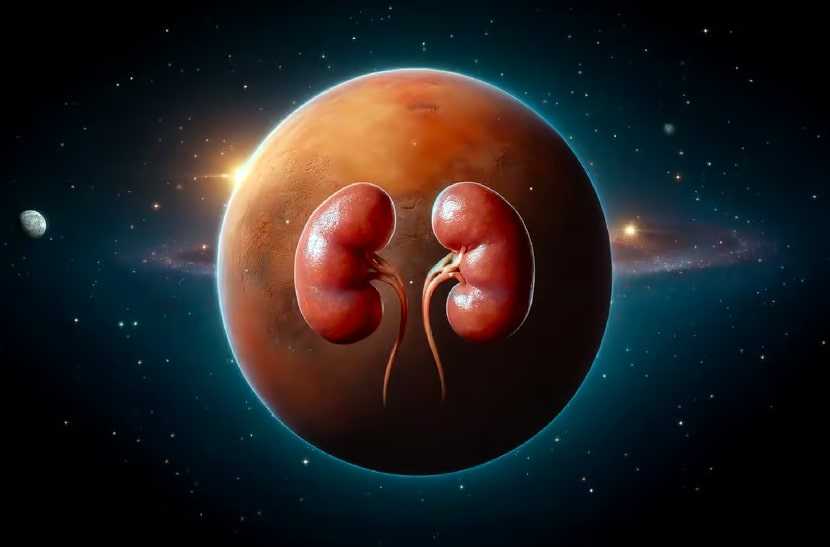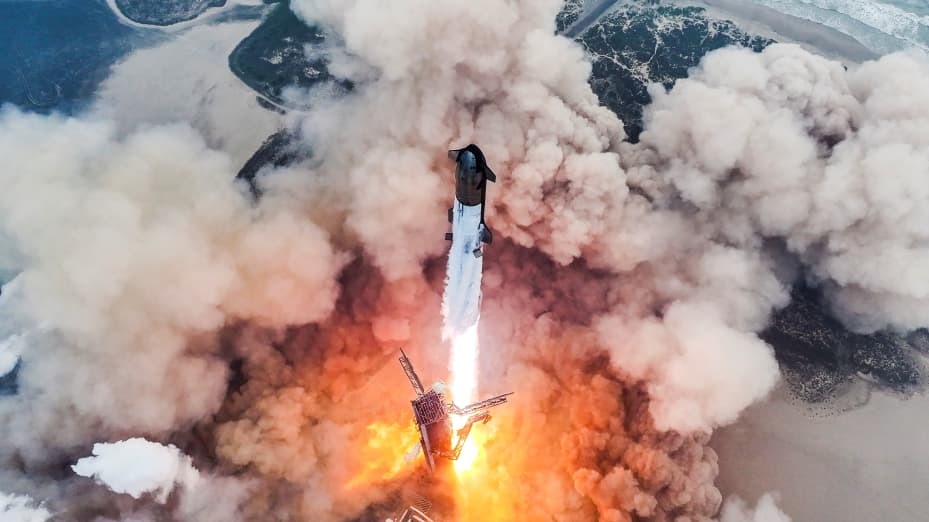Humanity’s ambitions for Mars received a major kidney punch

Image: New Atlas/DALL-E
NASA will likely have to rethink its current plans for placing the first astronauts on Mars, according to a new study that found human kidneys tolerate long-distance space travel about as well as a strict diet of salt, painkillers, and sleep deprivation (aka not very well).
The researchers, led by experts from University College London, analyzed samples from 40+ space missions involving humans and mice, marking the largest space-related kidney health study to date.
- Scientists found that both human and animal kidneys were 'remodeled' by the combination of weightlessness and cosmic radiation in space, with specific kidney tubules responsible for calcium and salt balance starting to shrink after less than a month in space.
- The study also included simulations where mice received doses of space radiation equivalent to what humans would experience on a future Mars mission. When the mice were exposed to 2.5 years worth of space radiation, they wound up with permanent kidney damage and loss of function. (For context: NASA estimates a manned Mars mission would take 2-3 years round-trip with current technology.)
Yes, but: While the study identified major challenges for future manned missions to Mars, it didn’t rule them out completely.
Researchers say it’s possible to develop technology or drugs to protect astronauts’ kidneys from harmful radiation – and if such preventative measures don’t materialize, they suggest adding dialysis machines or other recovery treatments to Mars-bound spacecraft.
👀 Looking ahead… NASA has a stated goal of placing the first humans on Mars as early as the 2030s, after first setting up a long-term human presence on the Moon.
Share this!
Recent Science & Emerging Tech stories

Science & Emerging Tech
| June 18, 2024What happens when AI models run out of training data?
🤖✍️ Major AI systems could soon run out of publicly available training data written by humans, which would present major challenges for AI firms seeking to maintain their current pace of progress

Science & Emerging Tech
| June 12, 2024Bill Gates-backed nuclear energy startup breaks ground in Wyoming
⚡ TerraPower, a nuclear energy startup backed by Bill Gates, broke ground in Wyoming on what it hopes will be the first in a new generation of American nuclear power plants.

You've made it this far...
Let's make our relationship official, no 💍 or elaborate proposal required. Learn and stay entertained, for free.👇
All of our news is 100% free and you can unsubscribe anytime; the quiz takes ~10 seconds to complete